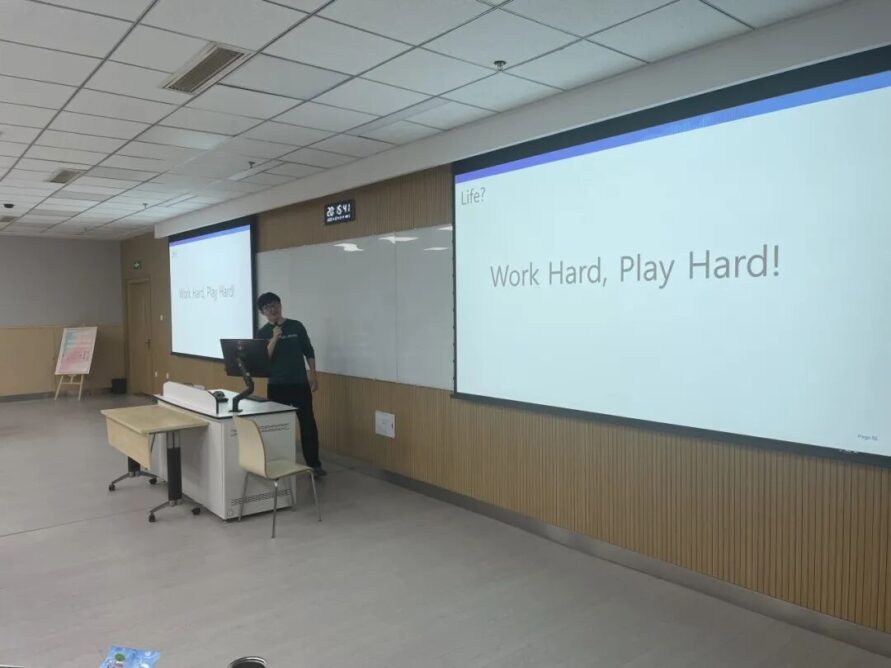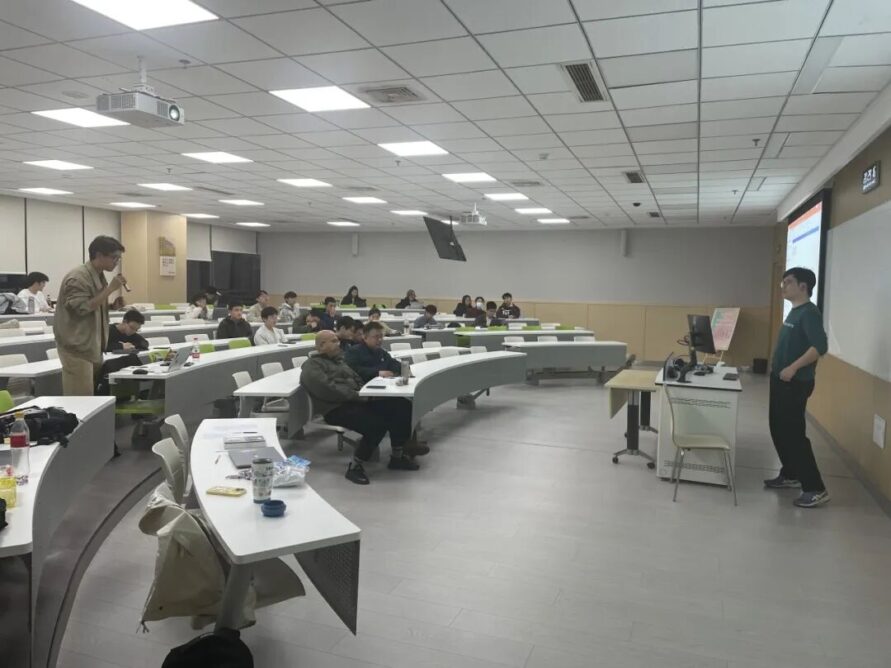Event Recap | Mathematics Seminar: Agentic Reinforcement Learning
Published on: November 18, 2025 | Views: 212

To spark students’ interest in mathematics, break down disciplinary barriers, and broaden their intellectual horizons, the Peer Advisors program of the Sichuan University – Pittsburgh Institute (SCUPI) has launched a series of mathematics seminars. On October 31st, the Peer Advisors successfully held a mathematics seminar titled “Agentic Reinforcement Learning”. The seminar was delivered by Junqiao Wang, a student majoring in Computer Science and Technology (Class of 2026). Associate Professor Zheng Yang and Assistant Professor Yingjie Wu attended the event and engaged in professional discussions with Junqiao Wang during the seminar.

Wang Junqiao, who is interning at the Shanghai AI Lab, began with a humorous “restroom problem” to vividly introduce the core idea of reinforcement learning (RL)—where an agent interacts with the environment and continuously learns through trial and error to maximize rewards. He then guided the participants through the mathematical foundations of reinforcement learning, providing a detailed derivation of the Bellman equation. Through visual explanations of the state-value function and matrix forms, he made complex theories intuitive and accessible. Finally, drawing from his research experiences at institutions like the Shanghai AI Lab, he encouraged students to explore the path of scientific research with a “Work Hard, Play Hard” spirit.

After the Q&A session, the host Chaojia Yu summarized the content of the seminar and provided a preview of future mathematics seminar topics and potential guests.
The Mathematics Seminar series will continue to organize events centered on the core concept of “interdisciplinary integration.” Through dialogues spanning mathematics, computer science, and artificial intelligence, the series aims to explore the boundaries of knowledge and the nature of intelligence. This session not only revisited the mathematical foundations and algorithmic evolution of reinforcement learning but also envisioned a new paradigm for the age of intelligent agents. Each future seminar will uphold this spirit of problem-driven inquiry and academic discourse, connecting theory with practice and integrating science with engineering. By doing so, the series seeks to inspire students’ innovative potential, expand the applications of mathematics, and transform math from abstract formulas on paper into a key tool for understanding the world and shaping intelligence.
We will continue to invite outstanding researchers from academia and industry to share cutting-edge advancements in AI, mathematics, and engineering.
